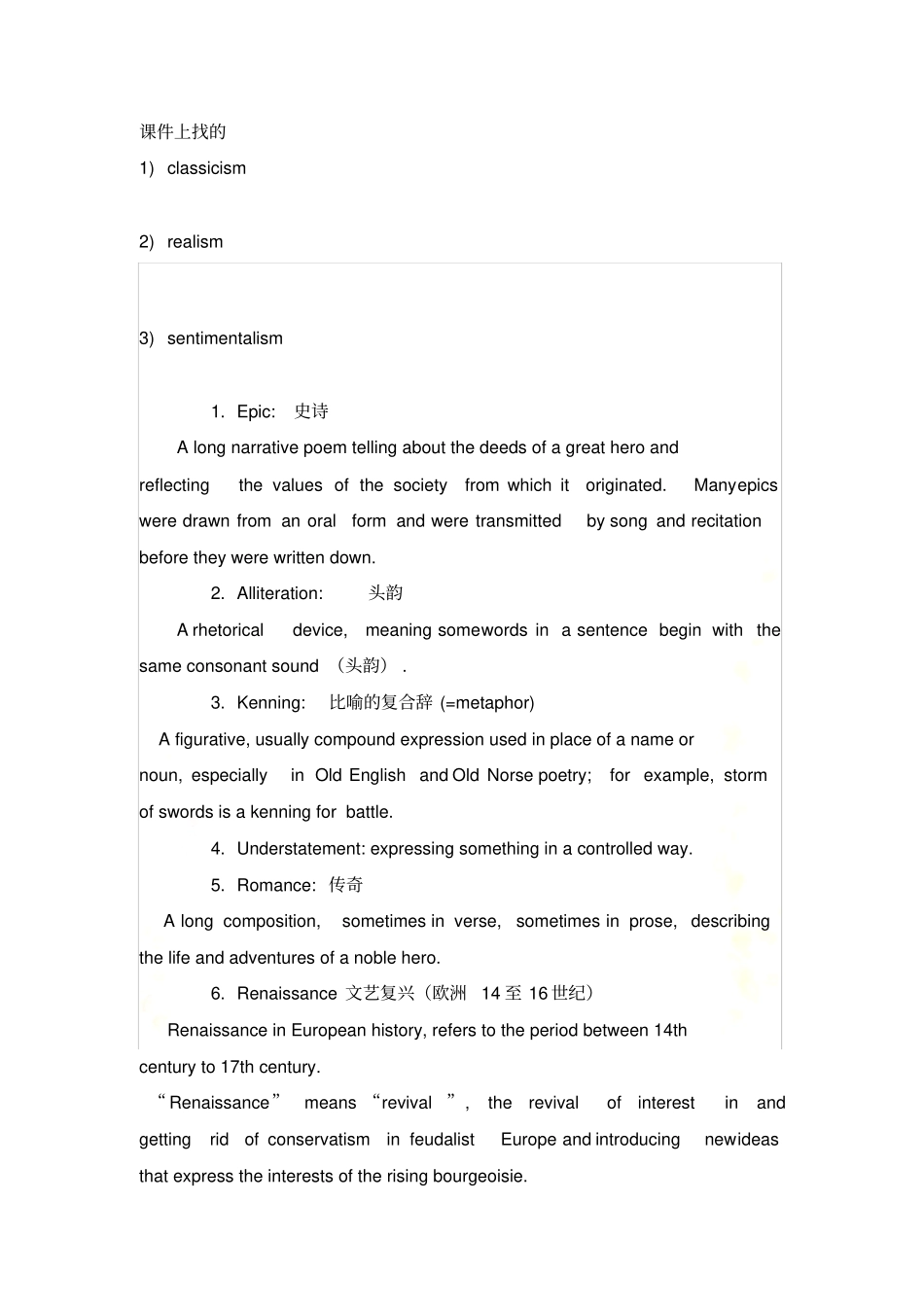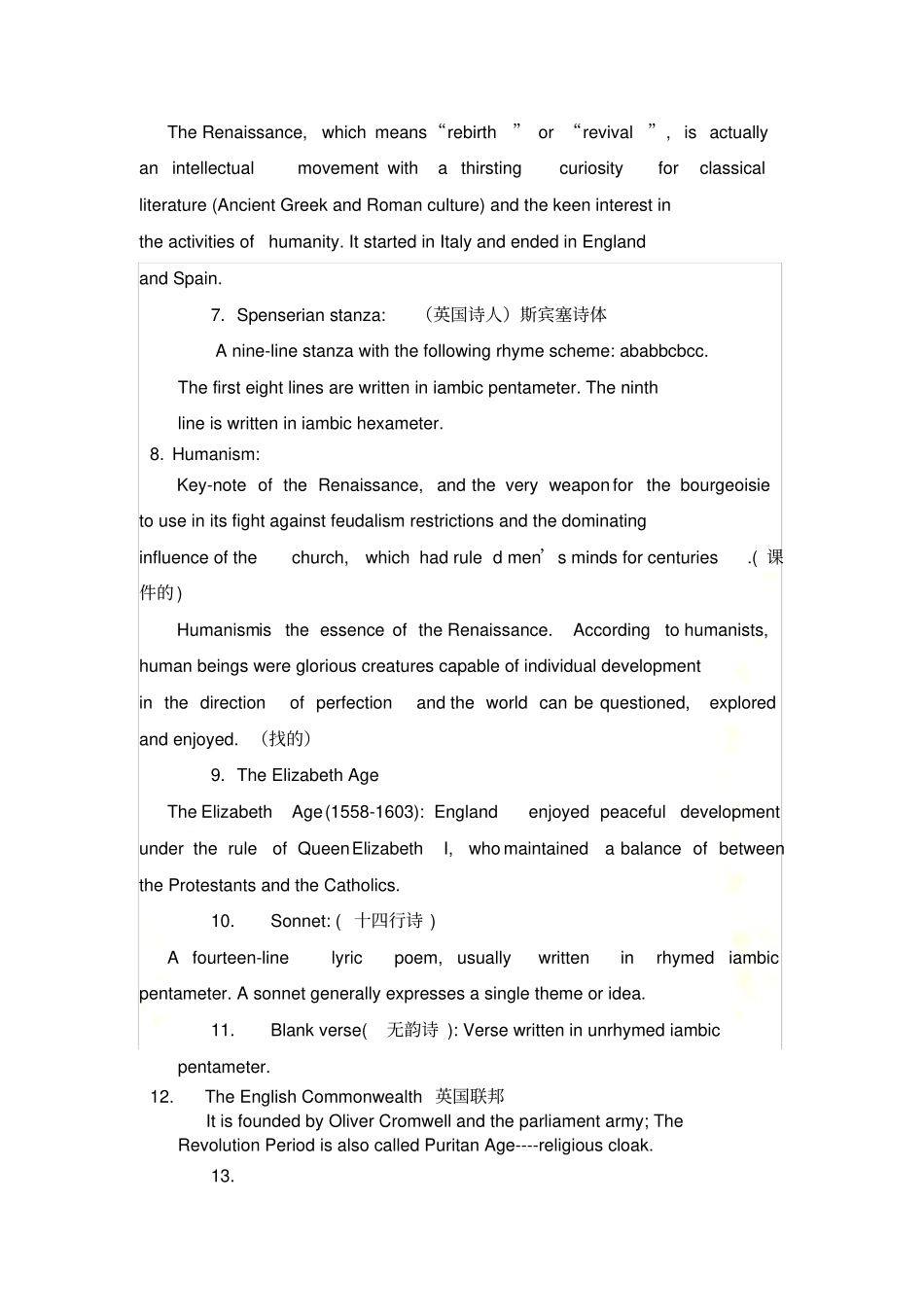英国文学名词解释课件上找的1) classicism 2) realism 3) sentimentalism 1. Epic: 史诗A long narrative poem telling about the deeds of a great hero and reflecting the values of the society from which it originated. Many epics were drawn from an oral form and were transmitted by song and recitation before they were written down. 2. Alliteration: 头韵A rhetorical device, meaning some words in a sentence begin with the same consonant sound (头韵) . 3. Kenning:比喻的复合辞 (=metaphor) A figurative, usually compound expression used in place of a name or noun, especially in Old English and Old Norse poetry; for example, storm of swords is a kenning for battle. 4. Understatement: expressing something in a controlled way. 5. Romance: 传奇 A long composition, sometimes in verse, sometimes in prose, describing the life and adventures of a noble hero. 6. Renaissance 文艺复兴(欧洲14 至 16 世纪)Renaissance in European history, refers to the period between 14th century to 17th century. “ Renaissance” means “revival”, the revival of interest in and getting rid of conservatism in feudalist Europe and introducing new ideas that express the interests of the rising bourgeoisie. The Renaissance, which means “rebirth” or “revival”, is actually an intellectual movement with a thirsting curiosity for classical literature (Ancient Greek and Roman culture) and the keen interest in the activities of humanity. It started in Italy and ended in England and Spain. 7. Spenserian stanza: (英国诗人)斯宾塞诗体A nine-line stanza with the following rhyme scheme: ababbcbcc. The first eight lines are written in iambic pentameter. The ninth line is written in iambic hexameter. 8. Humanism: Key-note of the Renaissance, and the very wea...


